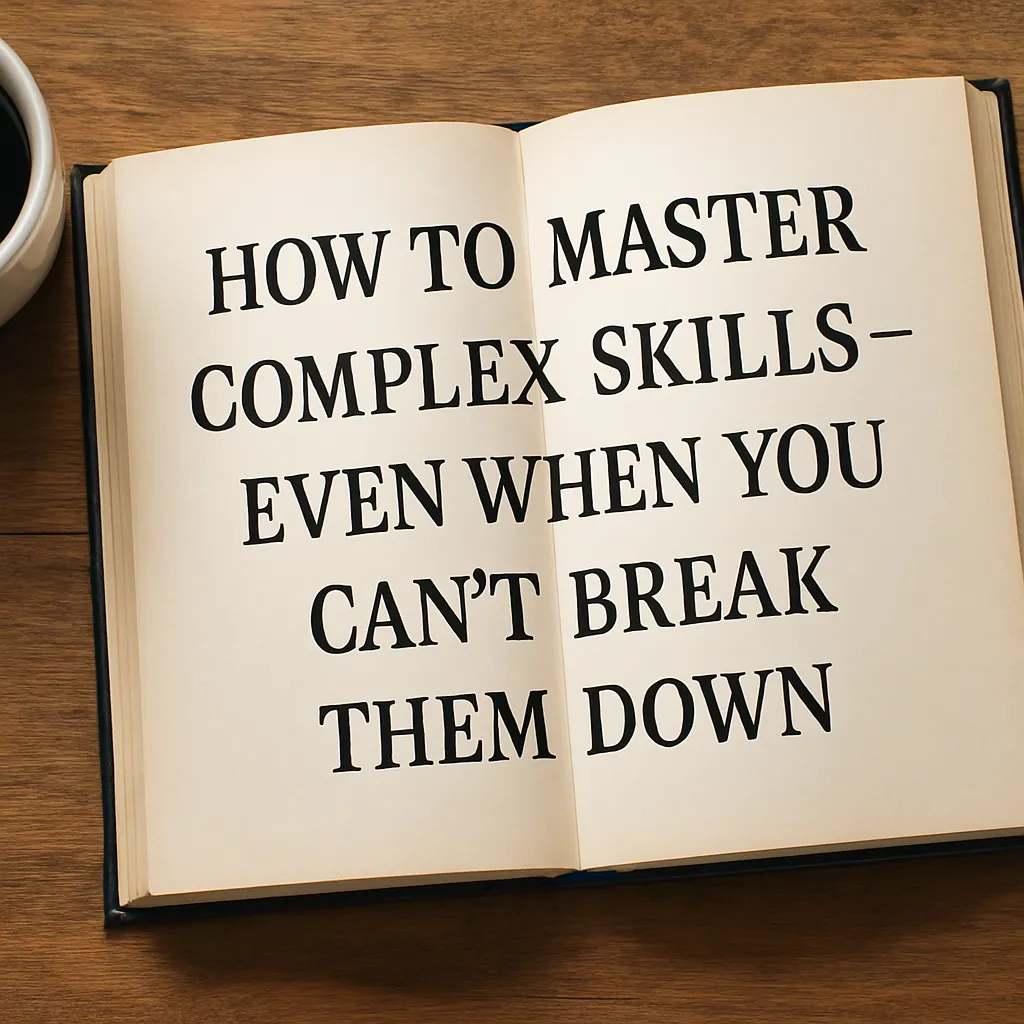
There are skills that are easy to learn—because you can break them apart. Like brewing a cup of tea. Easy: boil, steep, pour, drink. You can try each step individually. Grab the kettle. Fill the kettle. Add milk if you like. Each one does in sequence—and it's straightforward to separate out and make better each step.
But then… there are abilities that don't play like that.
Consider a game like StarCraft. It's not a single ability—it's a hurricane of them. You must collect resources, construct units, scout your opponent, prepare attacks, defend your base, retreat, evolve—all simultaneously. The components are enmeshed. Interdependent. You can't actually separate "defense" or "resource management" without the rest of the game collapsing.
So what do you do when the skill you're trying to acquire is a web of moving parts?
The Trick: Shift What You Pay Attention To
There's a wonderfully easy way out: change what you pay attention to—not the activity. You don't have to disassemble the skill physically—you disassemble it mentally by deciding what to pay attention to.
Let me tell you about an interesting study from years past—conducted with a now-obscure video game called Space Fortress. Not this one. Not that one. That one. It was a sophisticated game with many moving pieces—like StarCraft. And the researchers were curious whether focusing players' attention would cause them to learn more quickly.
They split students into four groups. All of them played the same number of minutes—roughly six and a half hours over ten games. But three of those groups had a twist.
- To one group they said: "For your initial six sessions, concentrate on how you steer your ship."
- To another group they said: "Observe the deployment of mines around your ship."
- Another third divided attention—three ship control sessions first, then three mine placement ones.
- And the fourth? No instructions of any kind. Just play it.
Now, if you'd been observing on the outside, you wouldn't notice much distinction. All of the players were doing the exact same thing. The only thing they altered was the location where they directed their focus.
What Happened Next Was Stunning
At first, all four groups did about the same. But as the sessions progressed, things began to change.
After six sessions:
- The control group (no special attention) was doing around 1,000 points.
- The two focused groups (either ship control or mine placement) were reaching 1,500.
- The split-focus group? They were flying at 2,000 points per game.
And when all groups simply "played normally" for the last four sessions, group four—the split-focus team—continued to improve faster than the rest.
Why This Works (and How You Can Use It)
Pay concentrated attention to one discrete element of a multifaceted skill and your brain will construct solid mental models. It's like building bricks for a building. You don't attempt to hoist the whole edifice at once. You start with one wall. Then another. Then you join them together.
That's how multifaceted, intertwined skills can be learned.
So the next time you're bogged down by a skill you can't readily dissect—don't attempt to learn it all at once. Zoom in. Concentrate on one piece for a bit. Then move on to another. Return to the first. Rotate.
You're not merely practicing—you're sorting chaos into order.
And trust me, your brain will appreciate it.
Note: The images used in this blog is chatgpt generated.